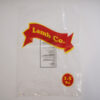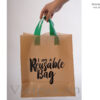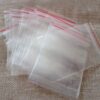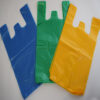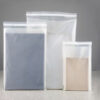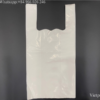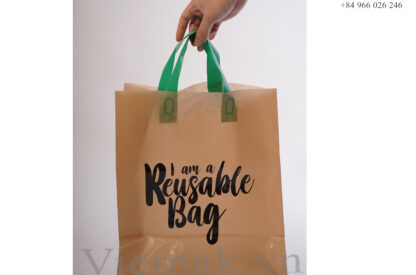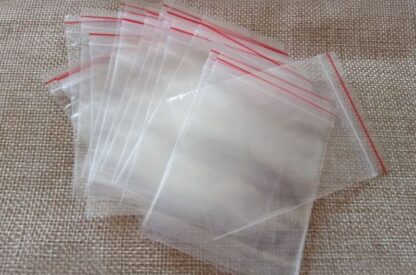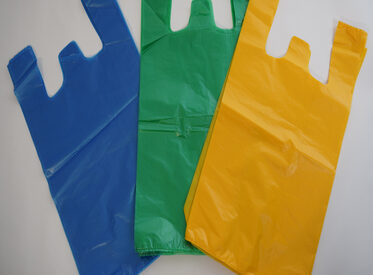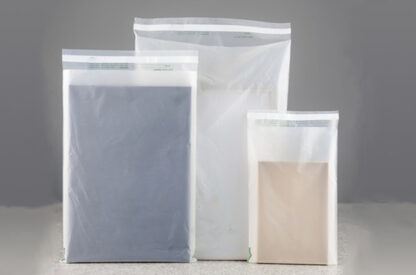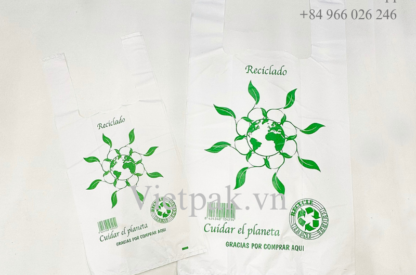Is It Eco-Friendly If You Reuse Grocery Bags as Trash Bags?
When it comes to finding eco-friendly solutions for managing household waste, reusing grocery bags as trash bags might seem like a logical choice. After all, it allows us to give a second life to these bags before they eventually end up in the landfill. However, the question remains: is it truly an eco-friendly practice?
What are grocery bags and trash bags?
Contents
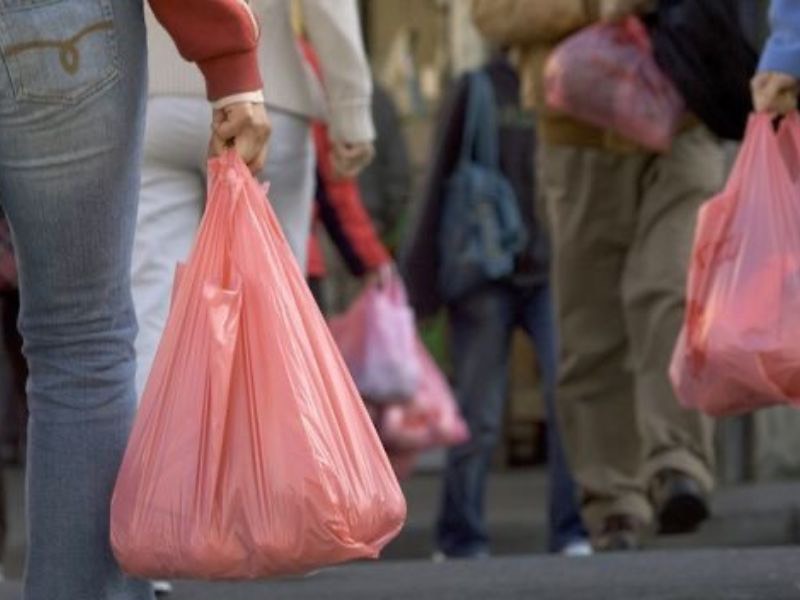
Grocery bags are a term used to refer to the bags used for carrying and transporting goods from stores to homes. These bags are typically made of plastic materials, such as polyethylene, and come in various sizes and designs. Grocery bags are commonly used to hold groceries and other purchased items from the store, and they can be reused or disposed of as waste after use.
Trash bags, also known as garbage bags, are bags used to contain and hold various types of waste. They are typically made from materials such as PE (polyethylene) plastic or other types of plastics and come in different sizes and durability to accommodate different types of waste. Trash bags are used to collect, contain, and transport waste from households, businesses, and public areas to appropriate waste processing facilities.
Is It Eco-Friendly to Reuse Grocery Bags as Trash Bags?
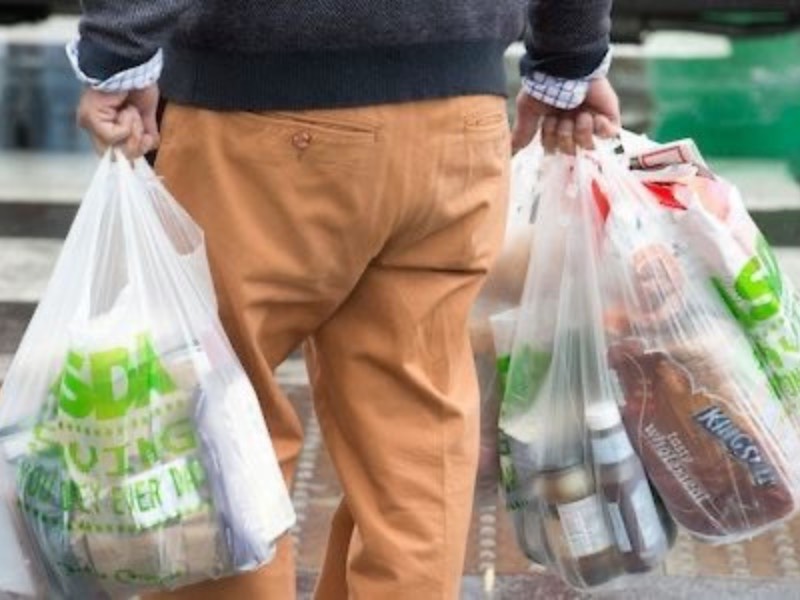
While using grocery bags as trash bags can reduce the use of new plastic bags, it’s important to take a few things into consideration:
The Convenience Factor
Initially, it might seem like a sensible and practical choice to reuse grocery bags as trash bags. In the end, it reuses a material that would have otherwise entered the waste stream. It’s crucial to think about whether this convenience is worth the potential environmental costs.
Material and Design Considerations
Lightweight plastics, like polyethylene, are typically used in the manufacture of grocery bags. The durability and strength necessary for containing and disposing of household waste may not be present, even though they serve their intended purpose well for carrying groceries. Comparatively, trash bags are made specifically to withstand the weight and jagged edges of various types of waste.
Limited Capacity and Leakage Risks
One of the main disadvantages of using grocery bags as trash bags is their capacity limitation and leakage risk. They are frequently smaller than specially designed trash bags, so they might fill up more quickly and need to be thrown away more frequently. Additionally, grocery bags might not be as leak-proof and odor-controlling as specially designed trash bags, which raises the possibility of spills and unpleasant odors.
Environmental Impact
Reusing grocery bags can help reduce their immediate disposal, but it’s also important to think about the impact on the environment as a whole. Even when they are used again, plastic bags eventually end up in the trash. There might not be many options for recycling plastic bags in your area, depending on the recycling facilities that are available. In light of this, recycling them as trash bags might postpone their ultimate fate of ending up in a landfill or damaging the environment.
Reference: Environmental Impact of Plastic Waste: https://www.nationalgeographic.com/environment/article/plastic-pollution
Alternative Solutions for reusing grocery bags as trash bags
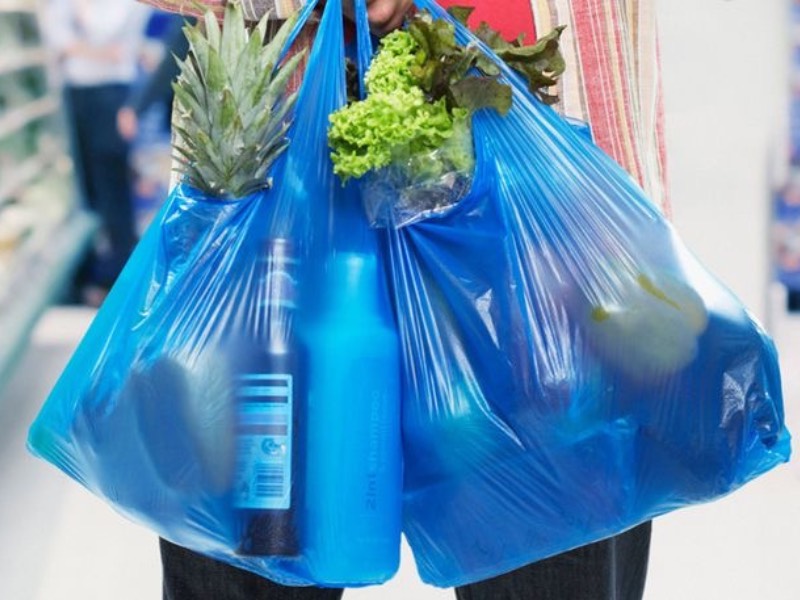
Dedicated Trash Bags
Choosing trash bags that are specifically designed for that purpose and made of recycled materials or biodegradable substitutes can help you live more sustainably. These bags are made specifically to handle different waste types, including wet and dry materials. In order to guarantee that your trash is securely contained and reduce the possibility of spills or odors, they frequently offer superior durability, tear resistance, and leak-proof properties.
Reusable Cloth Bags
Think about using reusable cloth bags for your shopping needs rather than relying solely on plastic grocery bags. These bags are constructed of durable, machine-washable materials like cotton or canvas. They are an environmentally friendly substitute for single-use plastic bags because they are made to be strong and resilient enough to withstand multiple uses. You can significantly lower your use of disposable bags and help reduce plastic waste by using cloth bags on a regular basis.
Composting
Implementing a composting system is a possibility for organic waste. You can turn food scraps, lawn trimmings, and other organic materials into nutrient-rich soil by composting them. By keeping organic waste out of landfills, you can save money by using fewer plastic trash bags and making compost that you can use in your garden or for landscaping. Composting is a great way to reduce waste and complete the nutrient cycle, fostering a lifestyle that is more environmentally responsible and sustainable.
Recycling Programs
Check to see if your neighborhood has recycling initiatives that target plastic bags. Plastic bags are accepted for recycling at some supermarkets and recycling facilities. You can make sure that the plastic bags are properly recycled and given a new life by taking part in these programs. To ensure effective recycling and reduce contamination, keep in mind that it’s critical to adhere to the recycling program’s guidelines.
Reduce Overall Waste
Focusing on waste reduction is one of the most efficient ways to lessen the need for any kind of trash bag, including grocery bags. This can be accomplished by being conscientious of your consumption patterns, choosing goods with little packaging, selecting reusable and long-lasting items, and following proper waste segregation procedures. The use of plastic bags for trash disposal is ultimately reduced by reducing the amount of waste produced.
In conclusion, while using grocery bags as trash bags may offer a short-term fix, looking at other solutions can result in more long-lasting results. Composting, using reusable cloth bags, participating in recycling programs, reducing overall waste, and using dedicated trash bags are all excellent alternatives that support environmental responsibility and lessen the negative effects of waste disposal. You can significantly reduce plastic waste and contribute to the development of a more environmentally friendly future by embracing these substitutes.
LEADING MANUFACTURER
We are a premier plastic bag manufacturer based in Vietnam. Our dedicated team excels in crafting customized packaging solutions to precisely meet the needs of all customers
QUALITY CONTROL
We have a strict quality control system. Our bags are inspected before production, during production, and prior to loading into containers. Our priority is to minimize every defective goods before shipping to our customers
AMAZING SERVICE
Our enthusiastic customer service team always strives to respond to your emails as promptly as possible. We take pride in our ability to consistently deliver high-quality products on time, every time.


